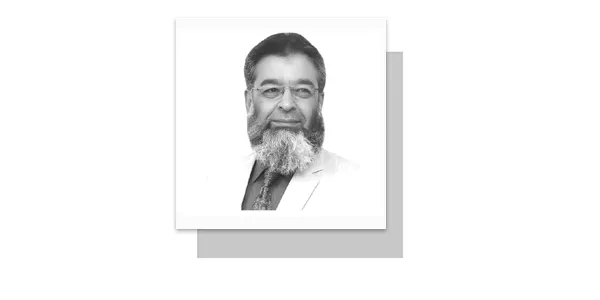IN the realm of international relations, diplomats are official representatives of their countries and must adhere to diplomatic protocols to ensure smooth relations with host nations. A key aspect of this protocol is the respect shown during the playing of a national anthem. Diplomats are expected to stand respectfully for the host country’s anthem at official events. This practice is not merely a formality but a critical part of diplomatic protocol and international law. The Vienna Convention on Diplomatic Relations, 1961, forms the basis for diplomatic conduct. Although the Convention grants diplomats immunity from the host country’s jurisdiction in many cases, it requires them to respect local laws and customs, including ceremonial protocols. Article 41 of the Convention mandates that diplomats must adhere to the laws and regulations of their host state, which encompasses ceremonial practices such as standing for national anthems. While the Convention does not explicitly address anthems, the expectation is clear that diplomats should honour the symbols and values of the host nation.
Diplomats enjoy significant privileges and immunities, such as exemption from local laws, but these do not excuse them from adhering to diplomatic decorum during official ceremonies. Disrespecting a national anthem can lead to various diplomatic consequences, including censure, formal complaints or requests for an apology. In severe cases, it might strain relations between the diplomat’s home country and the host nation. Historical examples of diplomats failing to observe these protocols are rare but notable. For instance, in 2002, U.S. Ambassador to Denmark Stuart Bernstein faced criticism for not standing during Denmark’s national anthem at a formal event. Bernstein later explained that his failure to stand was due to a misunderstanding of local protocol. The US embassy issued a swift apology, emphasizing that there was no intention of disrespect. In 2018, Serbian Ambassador Veljko Lazić caused a diplomatic stir by remaining seated during the Brazilian national anthem at a FIFA World Cup event. This led to diplomatic discussions and a formal apology from the Serbian embassy, which clarified that the diplomat did not intend to offend.
In 2020, Chinese diplomat Cong Peiwu was criticized for not standing during Canada’s national anthem at an event commemorating the Chinese Communist Party’s centenary. This incident contributed to existing diplomatic tensions between Canada and China, though it did not lead to an expulsion. Similarly, in 2019, the Turkish consul in Germany remained seated during the German national anthem at an official event. This occurred during a period of strained relations between Turkey and Germany over human rights issues. The consul’s behaviour was perceived as a deliberate act of disrespect, contributing to the perception of a diplomatic rift, though no formal protest was lodged.Another high-profile case involved Russian diplomats in Estonia in 2016. During a formal ceremony marking Estonian independence, Russian diplomats did not stand for the Estonian national anthem. Given the complex historical and political relationship between Russia and Estonia, including tensions over Russian influence in the Baltic region, the diplomats’ actions were seen as a political statement rather than mere oversight. The Estonian government issued a strong protest, accusing the Russian delegation of disrespecting Estonia’s sovereignty, which further strained relations.
In 2018, a Venezuelan diplomat in Colombia failed to observe protocol during the Colombian national anthem at an official event in Bogotá. The incident was sensitive due to the ongoing political crisis in Venezuela and strained relations between the two countries. The Colombian government protested, interpreting the diplomat’s behaviour as a sign of disrespect amid heightened diplomatic tensions. One of the most contentious incidents occurred in 2013 when a North Korean diplomat in Malaysia refused to stand during the Malaysian national anthem at a state function. The diplomat’s actions were viewed as provocative, especially since Malaysia and North Korea had previously maintained friendly relations. While Malaysia did not escalate the matter, the incident affected public perception of North Korea’s diplomatic conduct.
A recent notable incident occurred in September 2024 in Peshawar. Afghan Acting Consul General Muhib Ullah Shakil and his aide remained seated while others stood for Pakistan’s national anthem. This act was perceived as a diplomatic gesture of defiance and sparked widespread discussion and criticism in both political and media circles. The incident highlighted the delicate nature of diplomatic protocols and national symbolism, reflecting the complex dynamics of Pak-Afghan relations. These incidents, though infrequent, demonstrate that even unintentional breaches of protocol can have diplomatic repercussions. Disrespecting national symbols can lead to formal complaints, public scrutiny, and diplomatic protests. While severe consequences like expulsion are rare, such actions can exacerbate existing tensions between countries. Diplomats must carefully follow established protocols to maintain respect and positive international relations. In conclusion, while international law may not specify behaviours regarding national anthems, diplomatic customs and the principles of the Vienna Convention emphasize the importance of respecting host country protocols. Adhering to these practices is essential for maintaining diplomatic decorum and fostering respectful international interactions. Diplomats need to uphold these protocols to reflect their countries’ values and ensure smooth diplomatic relations.
—The writer is contributing columnist, based in Islamabad.
(ememiqbal68@gmail.com)










